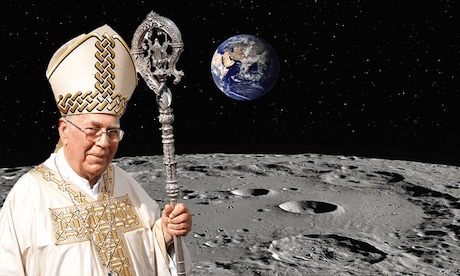People living near the international date line have become used to some confusion about when a feast day occurs. Even Sunday becomes a moveable feast. If you live in Tonga, you can avoid your Sunday obligation by slipping across the date line and then coming back again,
Some years ago, a significant crisis unfolded when the Samoan Government aligned Samoa’s time with New Zealand’s. This decision posed a challenge for a denomination that observed Saturday as the Sabbath, as they were now faced with the question of which day truly represented the Sabbath.
So how would the Church adapt its liturgical calendar if we colonised Mars or the moon?”
Humans are biologically designed to have a wake-sleep cycle synced with Earth’s day-night cycle. If we’re in an environment where the day-night cycle radically differs from what we’re programmed to work with, we ignore it.
For instance, the International Space Station goes around the earth in about forty-five minutes, meaning the astronauts on board get twenty-two minutes of light and twenty-two minutes of dark. There’s no way they want to fall asleep every twenty-two minutes and then wake up twenty-two minutes later for the duration of their mission.
There wouldn’t be a need to change the liturgical calendar on Mars because Mars is very close to the Earth. It’s only a few light minutes away, so even if their Sunday slides are a few hours from Sunday on Earth (because of the difference in the day lengths), you can still approximate that. So, they would still have the same kind of Sunday cycle, they could still celebrate Christmas and Easter at the same times, and so on.
But what if you go further afield—like out of our solar system? In that case, there’s no easy way to communicate with earth because of the light-speed limit. The local church in this other solar system may develop its own liturgical calendar based on the local planetary rotation period.
It’s not going to happen soon so don’t worry too much. Read more
Additional readingNews category: Odd Spot.




